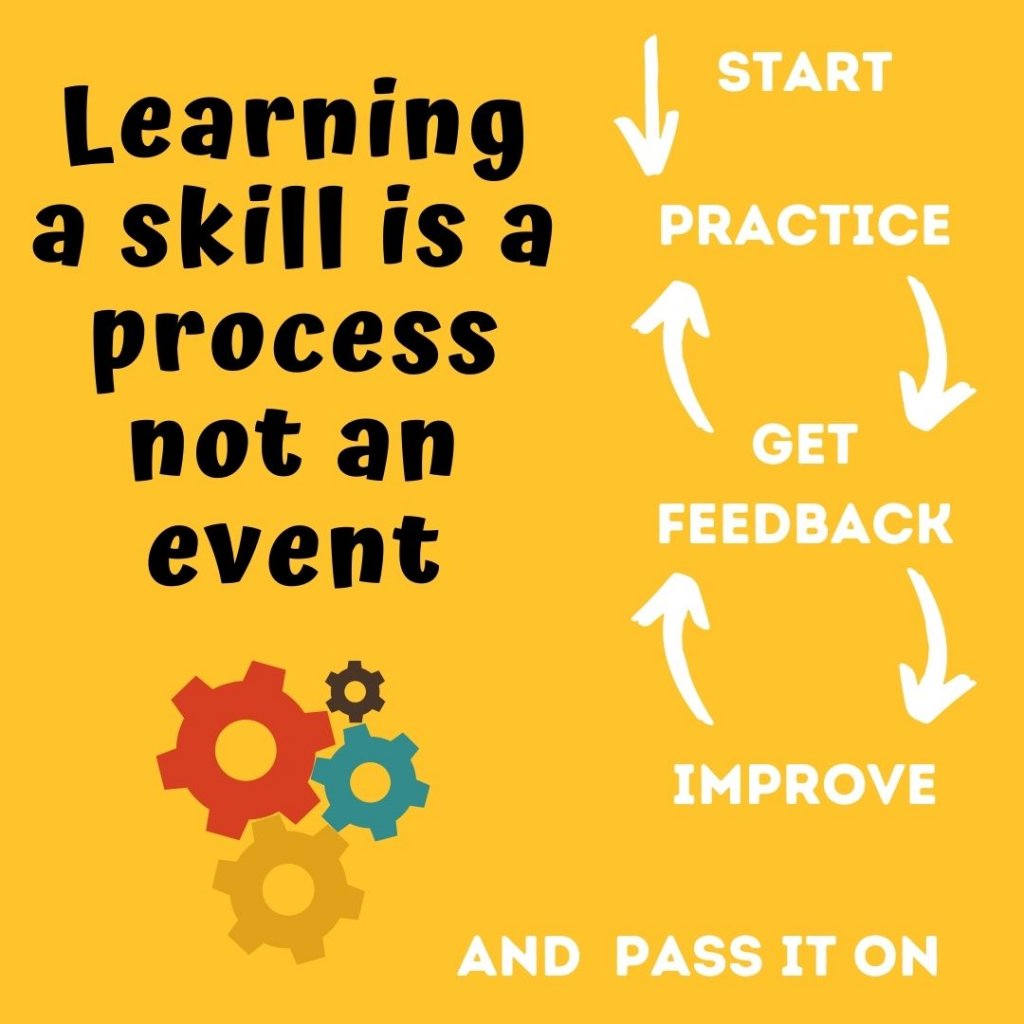As scientists, we want to share our knowledge with others and for this we need to present our work. We normally want to share our rationale, results and claims (our argument ) with others. Their questions and feedback would normally be helpful :).
Presentations vary from those in small groups (such as lab meetings) to local seminars, conference talks (tens to hundreds or even thousands of attendees), and zoom talks which have become more commonplace after the COVID-19 pandemic.

Presentations can be scary, but they are a necessary part of professional life (undergraduate projects, interviews, PhD-related presentations. In jobs outside science, presentations may be optional, but willing to present can gain you visibility). As an academic scientist I have seen the value of presentations since my undergraduate years. It is through presentations of my undergraduate projects that I discovered my love for experimental science and my capacity for critical thinking (I won a couple of presentation prizes back in the day!). This helped my confidence and my decision to pursue an academic career. But it is also through presentations that I have encountered tricky situations where either: someone with more experience or power gives what can be perceived as destructive feedback, or when I have doubted my own capacity as a presenter (this second one is easier to overcome – see the end of post for a practical solution to this one).

The good news is that great speakers use a set of skills that anyone can develop. Like most skills, these need practice and feedback. The dream is to be able to give presentations that both you and your audience enjoy and benefit from.
Important questions to consider before starting your presentation:
- What is the purpose of this presentation and what is being assessed or judged? Make sure to target the audience and plan towards meeting the aims of your presentation.
- What is your message? What do you want your listeners to remember after your presentation? Don’t lose sight of your key message as you prepare, practice, and deliver.
Great speakers use a set of skills that anyone can develop.
To figure out your key point: Try summarising your message in 6 words (yes, you can summarise many stories – scientific or not – in 6 words!) then try summarising your presentation in two sentences.
Useful skills to develop as a presenter:
- Learn about rhetoric and speech preparation. This course from Matt McGarrity, University of Washington is an excellent source of information and strategies to present complex ideas.
- Remember that preparing your presentation is different from rehearsing. Follow this great advice by Vox coaching to rehearse your presentation:
- Practice out load and in full to see how it works – also do a first check for timing.
- Direct your speech to someone – to project your voice (housemate? teddy bear?)
- Do a few rehearsals focusing in each rehearsal on a particular aspect, for example:
- To check that you are pausing and not rushing (pauses are good! look up Martin Luther King or Barack Obama’s speeches to see some confident pausing).
- To check if you do too much “umming and ahhing”. Checkout this video for excellent advice on how to stop “umming and ahhing” (see video at 36:40 for about 5 min) – you will need friend’s help to implement this super effective exercise!).
- Once you are happy with presentation, practice with someone “safe” (a nice colleague) and get feedback!
- Strive for excellence not perfection.
- You don’t have to practice the full presentation, specially if it’s long. Practice the start several times so that you can hit the ground running, practice the middle and the end.
If you’ve done all of the above then you are almost ready to present. But if you find that you tend to get nervous and maybe need to work on your voice and confidence, have a look at these TEDx talks (Caroline Goyder and Roger Love) about the importance of breathing, using your diaphragm (as actors do) and more!
- On the day of the presentation. Make sure to warm up! There is lots of excellent advice online for actors or presenters. This video offers a great warm up routine. Just before your presentation: yawn, sing at the top of your voice (to warm up your vocal cords and face muscles) or strike a 2 minute power pose! to reduce your stress hormones (important: do this before you enter a crowded presentation room or before you switch on your camera and microphone on zoom!).
One last note: If you ever struggle in a presentation and that hinders your confidence (yes I have been there!). Or if memories of a “terrible” past presentation keep you awake at night (yes I have been there!), remember that one presentation does not define you. Ask for feedback from someone who saw your presentation (it’s normally not as terrible as you thought). Ask someone nice, but who is willing to give honest feedback and work on their advice to improve for next time!
Enjoy presenting!

